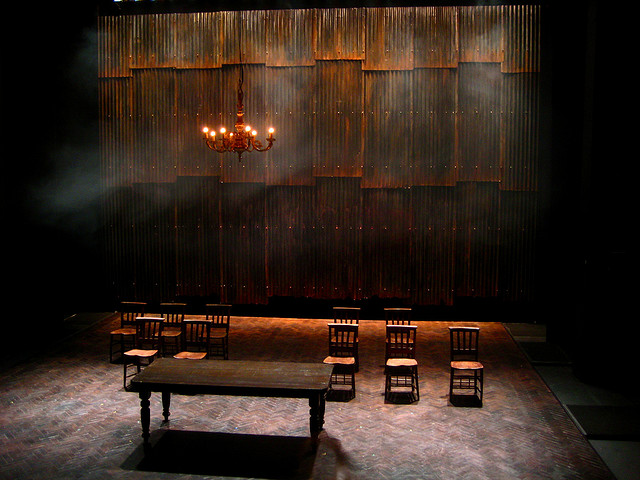"You already know enough. So do I. It is not knowledge we lack. What is missing is the courage to understand what we know and to draw conclusions." (Sven Lindqvist, Exterminate All the Brutes)
The idea of “the facts” has done a lot of damage in its career, but one of its most insidious effects is its ability to justify inaction. “Until we know all the facts, we can’t” is a phrase that gets placed at the beginning of many a cowardly sentence; in a world where “we may never know what really happened,” waiting for all the facts to come out is a little like waiting for Jesus to come and fix things. When we don’t want to act, it can be a relief to pretend we don’t know what we know—to arbitrarily raise the standards of proof we require—and pose as skeptics, as reasonable doubters. When we don’t like the opinions that we might otherwise find ourselves holding, waiting for “the facts” can be a wonderful alibi from looking honestly at we know.
Courts do not give justice, because they do not try. They follow a formal procedure, at best. The laws on the books require certain things, commands them to act in certain ways, and sometimes they do. Sometimes the arbitrary result of legislative fiat actually describes what actual courts and police do, in practice. But even if courts and police follow that law to the letter—and we all know they do not—the outcomes they produce are always the poorest of substitutes for “justice.” Some would say that courts and police exist so that we do not struggle for real justice; go home, go home, they say, there’s nothing to see here. Wait for the courts to sort things out. You don’t know all the facts.
Is it justice that Michael Dunn will go to prison for shooting a 17 year old because that young man played his music too loud and was black? No, it isn’t. Justice would be if black kids stop getting shot. Had Michael Dunn not been found guilty, it would demonstrate the extent to which killing a black youth is not always a crime in the United States, and that certainly is injustice. But Dunn is a symptom, not the cause of the problem; we live in a culture that can make murderous white men with guns a lot faster than they are—occasionally, rarely, almost never—sent to prison. You don’t get justice by occasionally, rarely, almost never sending murderers to prison; what you get is peace of mind, the ability to tell yourself that justice has been done. And the next time a white man, or a cop, shoots a black teenager to death, we will all say, hmm, I wonder what he did to provoke it. He must have made a furtive movement. We will interview the witnesses, and after the killer tells his story, we will regretfully admit that we may never know all the facts of the case. We will let legal process take its course. We will wait for the formal mechanisms of the law, and we will put off asking for the substance of what the law promises.
That women are assaulted, every day—that men attack and harm women in ways that are both physical and emotional—is a fact that never quite becomes a fact. It is said, sometimes, but it is not quite heard, does not quite get entered into the record of evidence. But if you ask a woman when the last time a man assaulted her body, when the last time she was made to feel unsafe and not in control of her own flesh—and if you need to ask, then you probably are not a women—the answer will probably horrify you. That’s not fact, though; that’s anecdote, the singular that struggles against being made plural. It doesn’t spur the engines of justice into action, because they are always isolated incidents. What made him act in that way? What was she wearing? What did she do? Occasionally, a rapist is convicted; occasionally, a case of molestation results in social or legal sanction for the assailant. Occasionally, something happens that you can call justice, if you want to reassure yourself. But the occasional consequence for the occasional violation doesn’t have anything to do with creating a world where women aren’t systematically and generally intimidated, violated, and kept in their place.
It’s not a fact that it’s legal to kill black kids in the United States, but the occasional guilty verdict for the occasional Michael Dunn is not what makes it untrue; what makes it untrue is our refusal to look at what we know, and have the courage to believe it. A white man with a gun knows quite clearly who he can and can’t shoot. That’s why black kids keep getting shot. The same is true for that delicate creature endowed with a penis, that fragile butterfly whose good name and reputation requires all the energies of industrial misogyny to sustain and propel. They know—we know—where it’s safe to use it, what homes, what bodies, and what desires can be violated. We know who has ground to stand on, whose home is whose castle. We know whose bodies can be secure. None of it has anything to do with justice, or “the facts.” Justice is somewhere beyond the place where we act on what we know.
